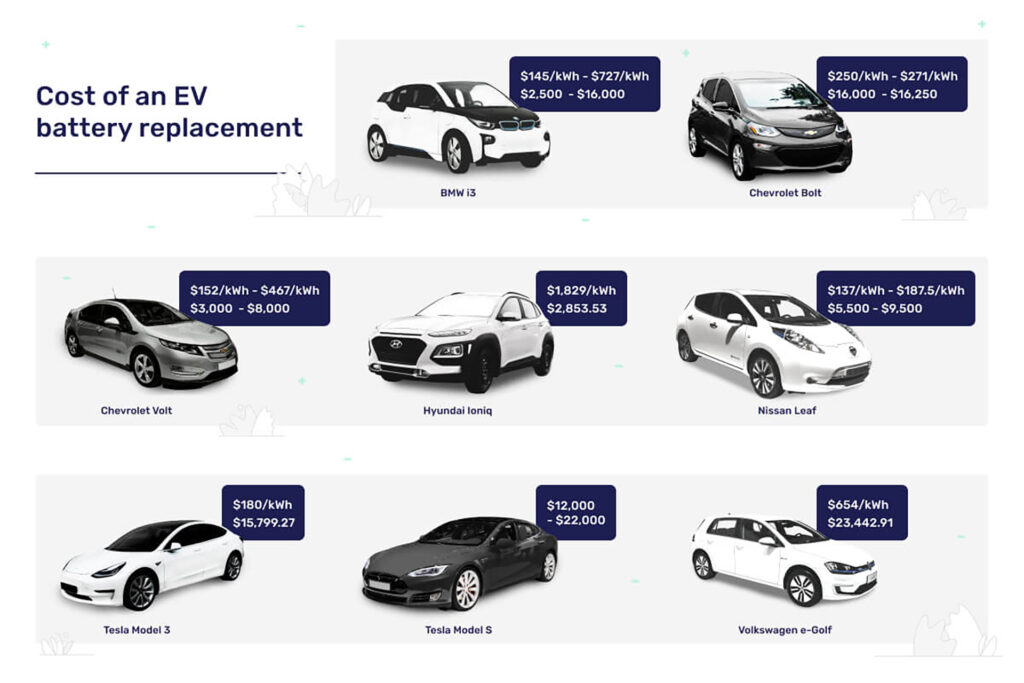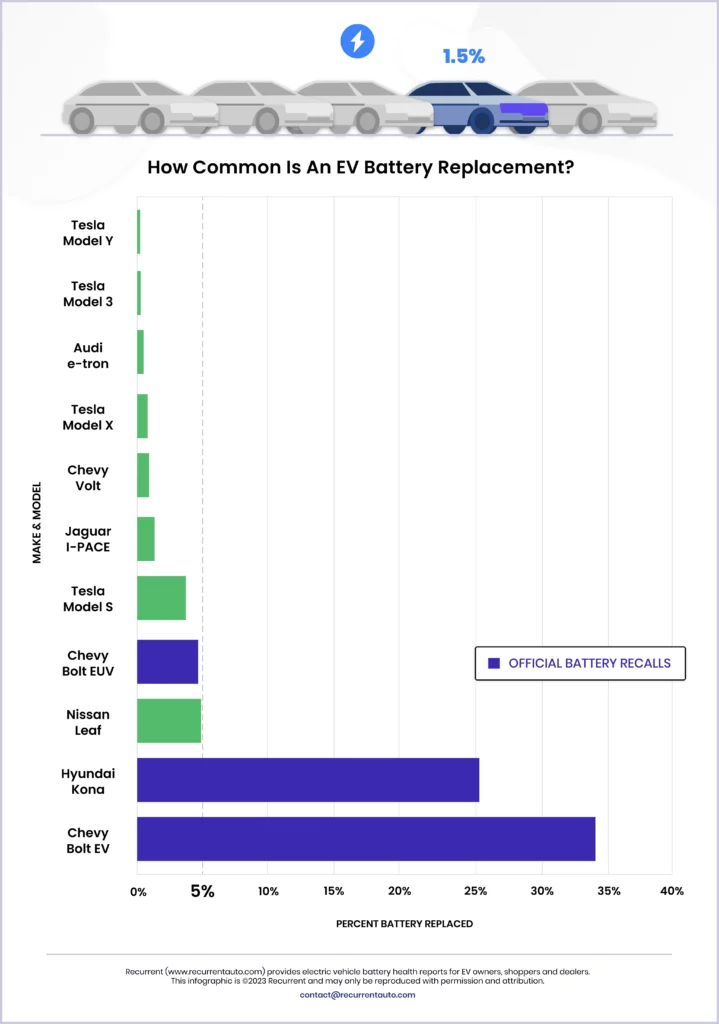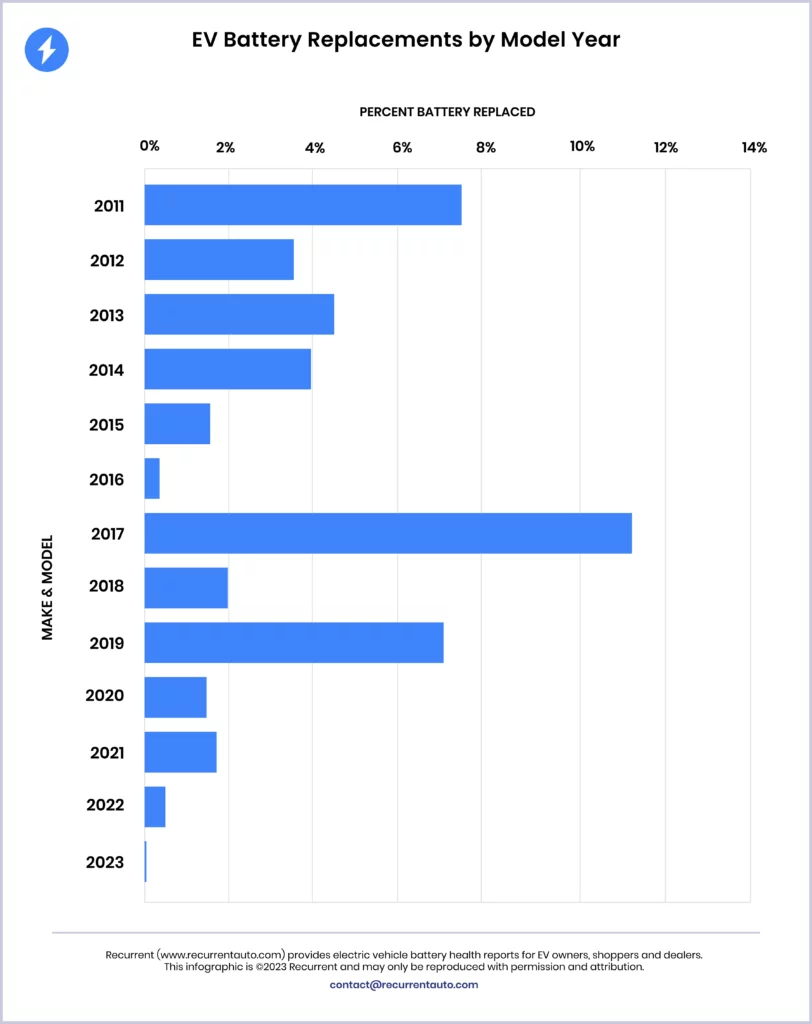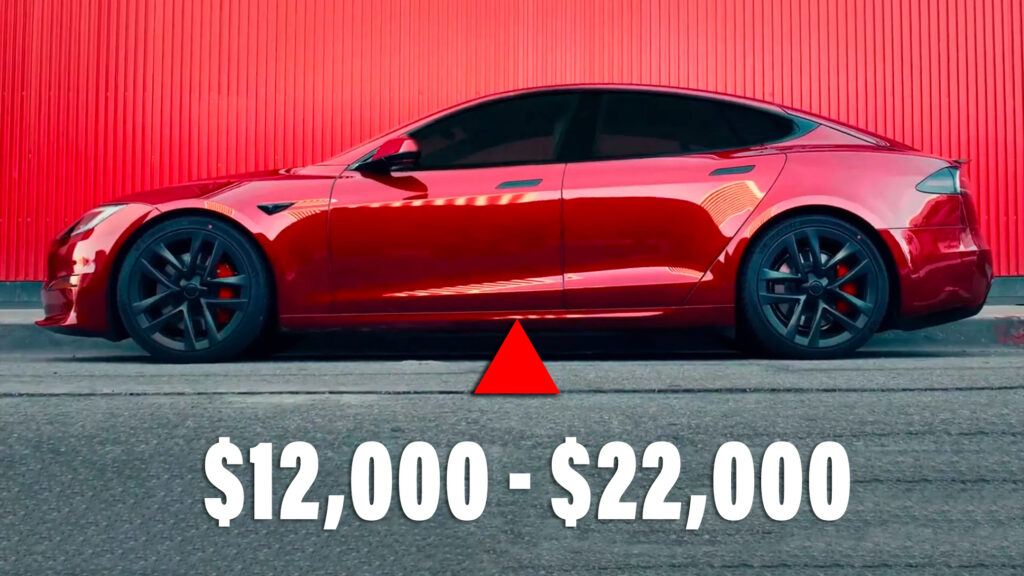Now that EVs have been in the mass market for a while, we’re starting to definitively see the effects of battery degradation, as well as everything involved with their replacement when they eventually start wearing out. Now, a new study by Recurrent details exactly how much it costs to replace the batteries on some of the more popular EVs on the market, and unsurprisingly, it doesn’t come cheap.
It’s worth noting that most of these vehicles have battery warranties covering repairs and/or replacement up to a certain number of years, so this tends to apply more to older vehicles outside their warranty period. The costs also depend on whether the battery is being replaced through the OEM or by a third-party shop. Regardless, the Bloomberg report referenced in Recurrent’s study placed the average battery replacement at $137 per kWh.
Read More: These Are The Most And Least EV-Friendly Places To Live In America

Starting off with the BMW i3, this quirky little subcompact’s battery was found to cost anywhere from $2,500 for a used example to as much as $16,000 for a new one from BMW. That equates to $145/kWh for the low end and $727/kWh for the high end. As for the Chevy Bolt, GM themselves listed the price of a battery at $15,734 back in 2017, however Recurrent found that dealers were charging closer to the $16,000 mark, and that was before labor. All in all, it amounts to a capacity-to-dollar ratio of $250/kWh for the cheapest option, or $271/kWh for the most expensive one.
Next up is the hybrid Chevy Volt, not to be confused with the all-electric Bolt. And seeing as it’s a hybrid, its smaller battery tends to cost less to replace than its electric counterpart’s. Recurrent detailed a price as little as $3,000 for a used pack or as much as $8,000 for a remanufactured one, which comes out to $152/kWh and $467/kWh respectively. However, back in August we reported a case in which a dealership charged a whopping $30,842 for a Volt battery replacement, $26,857 of which came from the battery alone. A 2018-2019 Hyundai Ioniq HEV’s battery would run you $2,853 as of 2021, which amounts to $1,829/kWh for the small 1.56 kWh pack.
Related: Here’s How Much Cold Temperatures Actually Affect EV Range

The humble Nissan Leaf, which has been on the road longer than any other car on this list, seems to vary more in its battery replacement costs. A 30 kWh pack could run you anywhere from $3,500-$4,500, a 40 kWh pack could cost in the area of $6,500-$7,000, and a large 62 kWh pack will run you roughly $8,500-$9,500, all excluding labor costs. Respectively, that comes out to $150/kWh, $187.5/kWh, and $153/kWh maximum for each of those ranges. Factoring in labor, which puts the totals in a range between $12,000-$19,000, and the capacity-to-dollar range increases to $266/kWh-$300/kWh.
Nowadays, a Tesla Model 3 battery will run you around $10,000-$15,799, while batteries for the larger, more expensive Model S ranges from $12,000 to $22,000, though the latter’s high case was a bit of a rarity. Finally, there’s the Volkswagen E-Golf, whose 35.8 kWh battery was quoted to cost as much as $23,443, which amounts to a whopping $654/kWh, one of the highest of all the vehicles on the list.





